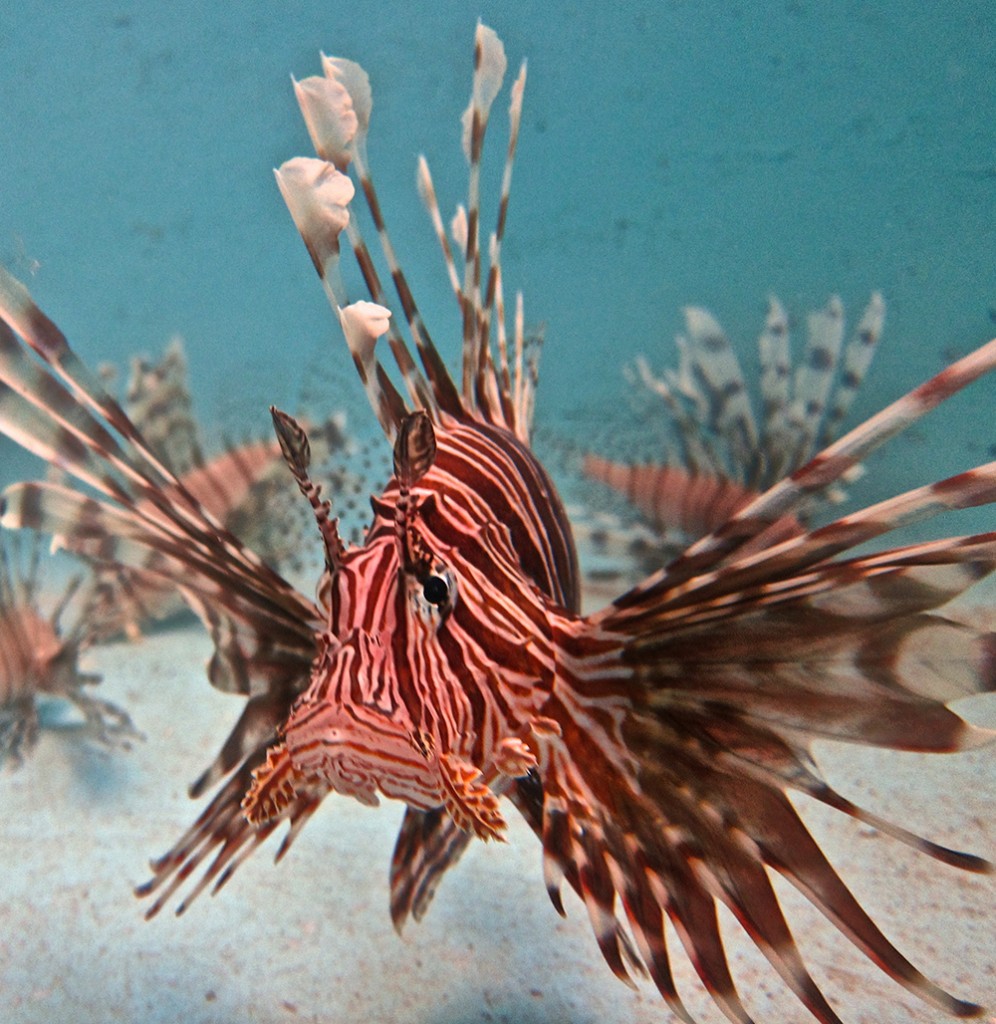With rising atmospheric carbon dioxide (CO₂), primarily from anthropogenic impacts, oceans are absorbing CO₂ at an alarming rate. This additional CO₂ changes seawater pH and chemical composition, profoundly affecting marine ecosystems. Future predictions highlight a continual increase in CO₂, which several studies have shown to affect a broad range of marine organisms, including ecologically important plankton, coral and fish species. A species which lacks any CO₂ related research however, is the invasive lionfish. Lionfish have a resilient nature, with a temperature tolerance range of 10˚C – 35˚C and a salinity tolerance range of 7ppt – 35ppt. Coupled with the ability to produce 30,000 eggs every two to three days, a lack of predators and a broad habitat type, there seems to be no barrier to this well adapted invader. Now prevalent in their invaded range in the Western Atlantic in an area of over 7 million km² in just 25 years, and with the ability to decrease native fish populations by 65%, studies into resilience to other environmental factors is fundamental in predicting future impacts.

Research Technicians Helen Conlon and Rob Drummond, supervised by Dr. Shultz and Dr. Curtis-Quick, started their collaborative independent research project investigating whether future worst case scenario CO₂ levels has the potential to affect invasive lionfish hunting behaviour and physiology. Results will aid the mitigation management of the invasion, either by additional emphasis for the need for immediate control methods, or concluding that hunting will be altered in the presence of increased CO₂. Stay tuned for more updates!